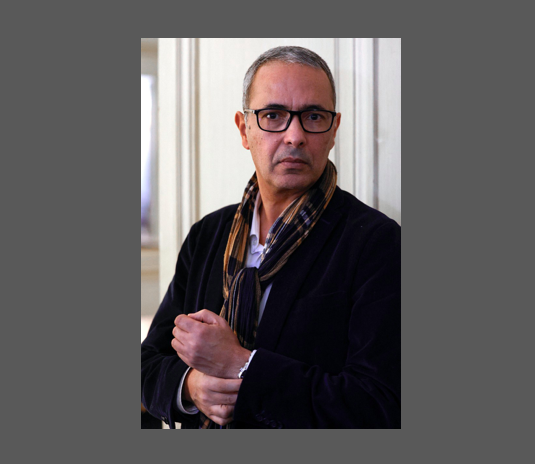
Franco-Algerian writer Kamel Daoud is being sued by Saâda Arbane, who accuses him of using her story without consent in Houris. A court hearing is scheduled in Paris, while the case sparks debate over the boundary between fiction and reality.
Franco-Algerian writer Kamel Daoud has been sued in France for invasion of privacy by Saâda Arbane, an Algerian woman who accuses him of stealing her story to form the core of his novel Houris, which won the prestigious Prix Goncourt last year.
This lawsuit, also reported by the French media outlet Mediapart on Friday, has its first procedural hearing scheduled for the afternoon of May 7 at the Paris judicial court, according to AFP sources close to the case. According to this source, the summons was served to the writer on Thursday during a book signing near Bordeaux, in southwestern France, as well as to his French publisher, Gallimard. Contacted by AFP, Gallimard declined to comment.
Houris, a term in Islamic belief referring to young women promised in paradise, is a dark novel set partly in Oran, following the story of Aube, a young woman who has remained mute since an Islamist slit her throat on December 31, 1999.
Saâda Arbane, 31, stated in mid-November on the Algerian channel One TV that the character of Aube was based on her own life. A survivor of an attempted throat-slitting attack by jihadists in 2000, she has since had to use a tracheostomy tube to breathe and speak. Kamel Daoud had known her as a patient of his wife, psychiatrist Aïcha Dehdouh, between 2015 and 2023.
"Metaphorization"
Supported by multiple testimonies, Arbane is seeking €200,000 in damages and public acknowledgment of any potential conviction, arguing that the resemblance is "far from coincidental."
She never wanted her story to become public and "never gave her consent for her account to be used by Mr. Daoud," the lawsuit states, despite three requests made between 2021 and 2024.
On the contrary, Saâda Arbane was "adamant that in no way should this deeply personal and unique story be used by anyone," especially given that it could expose her to legal repercussions in Algeria.
The lawsuit cites an interview Daoud gave in September to the French media L'Obs, in which he was asked whether his book was inspired by a real woman. The author of The Meursault Investigation responded: "Yes, I knew a woman with a tracheostomy tube (...). She was the real metaphorization of this story."
The legal document also includes statements from medical specialists in France and Algeria confirming the unique and unprecedented nature of Arbane's injury.
Additionally, it lists dozens of passages from Houris describing Aube’s family, the attack she suffered, her scars, and tattoos—elements allegedly mirroring Arbane’s real-life experiences, cited as evidence of "plagiarism."
"This lawsuit is absolutely exceptional in the history of legal cases concerning privacy violations under the guise of fiction," Arbane’s lawyers, William Bourdon and Lily Ravon, told AFP.
"Defamatory Campaigns"
"Mr. Daoud presents himself as an engaged writer, but in writing this book, he abandoned any ethical responsibility, respect for women's rights, and the duty of care he owed to a person he personally knew," Arbane’s lawyers further argued.
The writer is already the subject of a complaint from Arbane in Algeria. In mid-December, Daoud told the French public radio station France Inter: "Everyone in Algeria, especially in Oran, knows this story. It is public knowledge." "The fact that she sees herself in a novel that does not name her, does not recount her life, and does not detail her personal story—I’m sorry," he added.
Gallimard, for its part, condemned the "violent defamatory campaigns orchestrated by certain media close to a regime whose nature is well known." Houris cannot be published in Algeria, as it falls under a law banning any books discussing the "Black Decade" (1992–2002), a period of civil war that claimed at least 200,000 lives, according to official figures.
Daoud also supported the notion that the plaintiff was being "manipulated by the Algerian regime," which he has long criticized.
With AFP



Comments